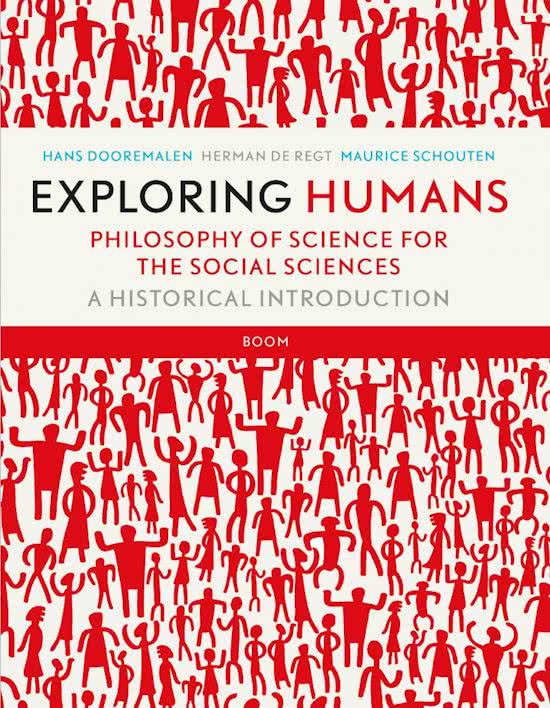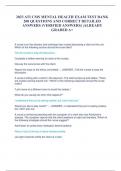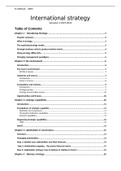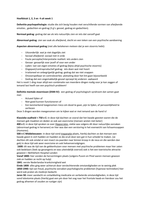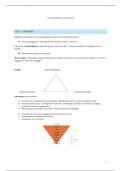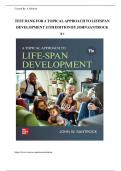ANCIENT PHILOSOPHERS 2
PLATO’S RATIONALISM 2
ARISTOTLE’S EMPIRICISM 3
BACON, DESCARTES AND BRITISH EMPIRICISTS 4
BACON’S NEW METHODOLOGY 4
DESCARTE’S RATIONALISM 5
LOCKE’S EMPIRICISM 6
BERKELEY’S EMPIRICISM 6
HUME’S EMPIRICISM 7
KANT, POSITIVISM AND HERMENEUTICS 8
KANT’S PERSPECTIVE ON HUMAN KNOWLEDGE 8
POSITIVISM 10
HERMENEUTICS 11
WITTGENSTEIN AND LOGICAL POSITIVISTS 13
WITTGENSTEIN 13
MACH’S INFLUENCE ON LOGICAL POSIVITISM 14
PROBLEMS WITH LOGICAL POSIVITIVISM 14
PHYSICALISM 15
KARL POPPER 15
FALSIFICATIONISM 16
CRITICAL RATIONALISM 17
CRITICIZING CRITICAL RATIONALISM 17
CONCLUSION 18
WITTGENSTEIN AND KUHN 18
WITTGENSTEIN’S PHILOSOPHICAL INVESTIGATIONS 18
RELATIVISM 19
KUHN’S VIEW OF SCIENCE 19
FEYERABEND AND LAKATOS 21
LAKATOS’ RESPONSE TO POPPER AND KUHN 21
FEYERABEND’S METHDOLOGICAL ANARCHISM 23
PROBLEMS FOR RELATIVISM AND CONSTRUCTIVISM 24
SCIENTIFIC REALISM, CONSTRUCTIVE EMPIRICISM, PRAGMATISM AND NATURALISM 24
SCIENTIFIC REALISM 24
CONSTRUCTIVE EMPIRICISM 25
THE RATIONALITY OF SCIENTIFIC BELIEFS 26
PRAGMATISM 26
NATURALISM 27
CONCLUSION 29
, SCIENTISM VS. SKEPTICISM ANCIENT PHILOSOPHERS
According to scientism, science is PLATO’S RATIONALISM
vastly superior to all other Metaphysics is the branch of philosophy that asks questions
attempts at securing knowledge. like “why is there something rather than nothing?” and
Skepticism argues that there is no “what is the world made of?”. A central issue was the
proof whatsoever in science. difference between being and becoming. Heraclites was
convinced that change (= flux) is at the heart of existence:
We can only claim that nothing is and everything becomes/ changes. Due to the ever-changing
nature of appearances, most people are not able to attain knowledge.
Parmenides believed that, underlying all the change and movement that we pick up with our senses,
there is a permanent and unchanging reality. If something changes, it no longer is. Everything is,
nothing becomes. Therefore, knowledge pertains to a hidden order beyond the transient
appearances.
These metaphysical issues are directly related to epistemological issues (i.e., “What is knowledge?”).
RATIONALISM VS. EMPIRICISM Plato believed that, if we equate
knowledge with perception, the
Rationalism = true knowledge about reality derives fluctuating nature of the perceptual
from the proper use of our reasoning capacities. Our world makes genuine knowledge
capacity to think generates ideas and concepts which possible. Knowledge becomes relative
we cannot arrive at by using our sensory capacities. to the observer and his own perceptions
Empiricism = sensory experience is the ultimate source and beliefs. Opinion is true to each
of knowledge. person and nobody can ever be wrong
about anything. Plato disagreed with
this consequence because truth and knowledge are about how things really are, not about how they
are for me and you.
Knowledge ≠ perception!
Plato thought that being is perfect, which for him implies that it has to be unchangeable. The real
world cannot be the ever-changing world of appearances, but has to be a supernatural realm which
contains the eternal and perfect Forms (= ideas) of almost everything. Knowledge does not refer to
natural objects we see every day, but to universals in a supernatural realm, which are the perfect
versions of their real-life manifestations. Human beings mistake appearance for reality and have to
learn to see behind these appearances into the world of Form*. The universal Forms are the ultimate
realities that ground true knowledge.
* The famous allegory of the cave Empirical investigation is inadequate for knowledge
explains his metaphysics. because it only brings us into contact with a reality that is
ever-changing. The operation of the senses results in mere
belief (= doxa), not knowledge. According to Plato, we can gain knowledge about this supernatural
world through our capacity for reasoning. He supported nativism, the doctrine that human beings
possess innate ideas – knowledge states that we already possess at birth. Insofar as we have such
ideas, we don't have to rely on our senses for knowledge.
Plato believed that we are all born possessing all knowledge and that learning new things is actually
nothing more than remembering them. There's no such thing as new knowledge. This assumption is
based on his theory of reincarnation: Our immortal soul belongs to the world of Forms but we forget
about it when our souls are born into our bodies. Reason allows us to still access the Forms.
,ARISTOTLE’S EMPIRICISM
Aristotle believed that, to make scientific progress possible, we have to leave abstract theorizing and
turn to the empirical facts of nature. His metaphysics is this-worldly rather than other-worldly:
Universals don't transcend this world of sensory experience but are incorporated into natural
objects. Essences are part of the natural world and hence accessible, not by pure intellectual
thought, but by empirical inquiry. All knowledge ultimately comes from observing nature.
Empiricists claim that we are born with no knowledge at all: the mind is a tabula rasa, a blank slate,
before it receives impressions from reality. Science consisted for Aristotle in the discovery of the
causes of objects: We have knowledge when we're able to provide a causal explanation.
Syllogism: (a) All human beings are mortal Scientific deduction
premises When a basic premise is not certain, the
(b) Socrates is a human being
syllogism will only produce personal opinion,
(c) Hence, Socrates is mortal conclusion not true knowledge.
The principles on which scientific knowledge rests must be causative, immediate, and true. The
universal principles on which scientific explanation rests cannot themselves be proved by making
them the conclusion of another syllogistic argument. To establish the basic explanatory principles, we
have to – instead of moving from general to particular (as shown above) – move from particular to
general. This is called induction and involves an advance from the observation of particular
phenomena to universal laws. Universal principles are obtained from facts derived from sensory
observation. However, the universal validity of the first scientific principles does not follow from the
observations we collect, no matter how large our collection.
Aristotle argued that the truth of the universal causal principles is apprehended by a special and
infallible intellectual capacity called nous. Such intuitive induction by the mind guarantees the truth
of empirically acquired correlations. For example, although observations by themselves can only
establish that all humans observed who have died so far are mortal, it is our intellect that produces
the insight that humans are necessarily mortal.
Classifying Aristotle as an empiricist is somewhat controversial. His understanding of induction is not
exclusively observational. The notion of causality is crucial to Aristotle's theory of knowledge and he
distinguishes four types of cause:
(1) The formal cause = Apollo-shape
Example: the making
(2) The material cause = Marble
of a marble statue of
(3) The Efficient cause = Sculptor (the primary source of change)
Apollo
(4) The Final cause = Aesthetic (the goal)
After the Scientific Revolution, only the efficient cause is accepted as a real and scientifically
interesting cause. These considerations suggest that Aristotle is not a radical empiricist, relying
exclusively on the output of the senses. Aristotle himself said that “all scientific knowledge involves
reason”, which is strongly related to the ideas of rationalism.
In the middle ages, issues relating to knowledge were resolved either by quoting the Bible or
Aristotle. Thomas Aquin tried to unite Christian teaching with the pagan ideas of Aristotle. This can
best be illustrated with the example of Aristotle's theory about matter and form: Matter (e.g.,a piece
,of marble) is potentially something else (a statue). The shape of this statue makes this matter
something else but it is not unchangeable – the statue can break again, describing the process of
creation and decay. Aristotle believed in a causal chain of events that underlie this process. If you go
all the way back, there has to be a first cause that puts everything else into motion (= the unmoved
mover). Aquinas argued that God has put this process in motion, basically stating that what Aristotle
said is the same as what the Bible says. Aristotle's geocentric cosmology as well as the related
Ptolemaic astronomy were also woven tightly into Christian theology by Thomas Aquinas and this
view dominated thought until the 16th century.
Another one of Aristotle's beliefs was that performing experiments does not lead to knowledge
because manipulating the world causes it to go against its natural ways. We wouldn't learn anything
about it. A consequence of the aforementioned equality of Aristotle and the Bible was that both
philosophy and science came to a halt in the Middle Ages.
BACON, DESCARTES AND BRITISH EMPIRICISTS
In the Novum Organum, Francis Bacon provided the outline of a new scientific method, with the aim
to reconstruct sciences, arts, and all of human knowledge. Science would no longer rely on faith,
tradition, the theological canon, and church authority, but would instead be guided by observation
and experiment. Bacon was the father of experimental philosophy.
Copernicus was the first to radically undermine the earth-centered and human-centered view of the
cosmos, with ''The Revolution of Heavenly spheres". He proposed the idea of heliocentrism rather
than geocentrism. This publication sparked the scientific Revolution. Whereas clerical authorities
stuck to the view that truth can only be found in the Bible, science increasingly emphasized the need
for theories that are supported by observational facts.
BACON’S NEW METHODOLOGY
Bacon saw intellectual history as a history of endless and pointless debates among philosophical and
religious schools. Progress would only be possible if the classical-medieval monopoly on science was
finally broken. Truth does not come from contemplation and authority, but relies on the testimony of
the senses.
However, Bacon was not a naive empiricist: He warned against the idols that warp perception and
considered the view of our minds as tabula rakes too simplistic. The projections of reality that we
form in our minds are often very distorted. Idols are characteristic errors, deceptions or sources of
misunderstanding and we need to get rid of them to get scientific inquiry started. There are four
categories of idols:
(1) Idols of the Tribe are innate and shared by all human beings: Our senses are prone to mistakes,
we tend to postulate more regularity in nature than there actually is, we stick to our conclusions,
and we tend to focus exclusively on the evidence that supports our cherished convictions and
disregard its failures.
(2) Idols of the Cave refer to the peculiarities of individuals which are due to their upbringing and
training. He thinks of an 'extreme admiration of antiquity' or an 'extreme love and appetite for
novelty' – both extremes should be avoided.
(3) Idols of the Marketplace stern from common language. People are often inclined to think that
words used in language refer to things that actually exist, even though that is not necessarily the
case.
(4) Idols of the Theatre include the accepted dogmas and methods of old schools of thought.
According to Bacon, Aristotle's philosophy belongs in this category: Even though he believed in
, observations, he had made up his mind beforehand and only used limited experimental data to
support his beliefs.
Until the end of the 16th century, deductive logic was firmly in place. The truth of deductive
conclusions derives from the truth of the premises. Bacon wondered, what guaranteed the truth of
these premises. He argued that universal statements can never be the starting point of scientific
inquiry and that deductive arguments are only useful if they are adequately supported by empirical
facts.
The new tool for investigating nature is the method of induction: Scientists must gather as much
empirical data as possible as the basis of hypothesis formulation. However, science is not only about
careful, inductive data collection, but the needs interpretation through theories as well. Science is
not just observation and not just reason, but the combination of the two. We should look for
refutations of our general claims.
DESCARTE’S RATIONALISM
Descartes was clearly a rationalist as he defended the view that in the end it is not perception but
reason that grounds knowledge. Although he accepted the notion of inborn ideas, he was not as
radical as Plato. Even though he was a rationalist, he did not make knowledge up completely but did
important empirical work. He believed that all knowledge should be built on a basis of self-evident,
absolutely certain statements and therefore, a science also needs to be built on statements that are
known to be absolutely true.
Descartes identified reason as the main source of universally true statements: We should use a
method of doubt to obtain true knowledge (= scientia). Anything that can be doubted is uncertain
and should not be regarded as knowledge. He started by doubting his senses as a source of
knowledge because they can deceive us. He introduced the concept of a demon (= malin génie) as
the source of all deception.
This kind of reasoning led him to doubt even apparently "safe” sources of knowledge, like
mathematical certainties, because humans can make mistakes when employing them. He could not
accept any of his former beliefs any longer.
For Descartes, this train of thoughts did not result in skepticism. After all, in doubting everything, he
knows with absolute certainty that he is doubting. If he is deceived in thinking something, he at least
knows that he is thinking and therefore, he exists. This is the foundation of his philosophy “Cogito
ergo sum” (= I think, therefore I am). He believes that he is a res cogitans, an immaterial, thinking
being. The truth of this statement is clear and distinct, which becomes the requirement or method
for obtaining a fundamental truth.
According to Descartes less radical understanding of innate ideas, there is only a small number of
innate ideas, placed in us by God. All other ideas stem from experience: acquired ideas (e.g., the sun)
and invented ideas (e.g., Pegasus). However, there will always be a possibility that the demon
deceives him, so he will not get any further than the certainty of the cogito. In his idea of God, it can
be found that God is perfect. If God is perfect, he has to exist, for to exist is more perfect than not to
exist. He knows this is true because this insight is clearly and distinctly true. Because he is perfect,
God is also good and he will not deceive us and therefore the physical world truly exists. Descartes
concludes that he is also a res extensa (= a physical thing). Where the res cognitions is characterized
by thinking, the res extensor is characterized by extension: Physical things occupy space in the three-
dimensional world. This belief in two substances is also called dualism. Either of them can exist
,without the other.
LOCKE’S EMPIRICISM
Locke felt that it was necessary to rethink the human capacities for understanding: What objects is
our understanding fitted to deal with?
The main argument that rationalists used to defend the notion of innate ideas was the universal
consent to certain principles: We only adhere to them because we are all born knowing that these
principles are true. These principles are “What is, is”, “Things cannot simultaneously be and not be”
and some moral principles. Locke argued these principles cannot be innate because not everyone
believes in them (e.g., children) and because morals differ across groups.
Locke believed that all our knowledge is founded in experience. All our ideas stem from sensation
and reflection: Sensation causes our experiences of events to go in our mind, where an internal
sense (= reflection) helps in the formation of ideas. He differentiates two kinds of ideas: Simple ideas
cannot be broken down anymore. See, for example, ideas of one sense (e.g., yellow), ideas of two or
more senses (e.g., movement), ideas of reflection (e.g., thinking) and ideas of perception and
reflection (e.g., paint). Complex ideas are combinations of simple ideas. Examples are ideas of mode
(i.e., properties of something; e.g., the beauty of a painting), ideas of relation (e.g., being the brother
of someone), and ideas of substance. Ideas of substance pose a problem for empiricists because
substances are something that exist on its own. An empiricist cannot conclude that there is
something that is not observable.
There are three qualities (= properties) that we attribute to objects. All material bodies have primary
qualities, which are aspects that characterize them whether we perceive them or not. The primary
quality of a snowball is its round form. Secondary qualities only exist when the object is perceived.
They comprise sensible properties like colors, sounds, smells, tastes, etc. A snowball is not white
because there is whiteness in the object, but because the primary qualities of the snowball cause the
experience of it being while in our minds – the whiteness is projected on the snowball so that we
think it really is white. Tertiary qualities are the powers objects have to change another object so
that it causes different sensations in us. For example, the sun has the power to make wax white.
But how do we know which experiences correspond to primary and which to secondary properties?
BERKELEY’S EMPIRICISM
Berkeley believed that we cannot be sure that objects exist outside of the mind. He proposed that
there is no twofold existence of ideas and the objects they are supposed to resemble: We have good
reason to believe that material objects really do not exist. Locke argued that there are secondary
properties which are mind-dependent, while primary properties are mind-independent. Berkeley
wondered how we can be certain that shapes are objectively there if we only have our experiences of
them?
According to Berkeley, we also find perceptual relativity in the case of primary qualities. Every object
is only tall or hard relative to a perceiver. Everything that exists, exists in virtue of being perceived:
Esse est percipi (= to be is to be perceived). This view that the existence of something consists of it
being perceived by a mind is called idealism. However, Berkeley does not claim that objects cease to
exist when we do not perceive them. The continuous existence of objects is guaranteed by God, who
is omnipresent and always perceives everything.
,Because the ideas cannot exist in an “unthinking substance”, there can only be a thinking substance*
which perceives. Berkeley committed himself to immaterialism. With
*Substance = anything
regards to Descartes dualism, he proposes that there is not two but only
that can exist on its
one substance: The mental substance, which determines all physical
own.
objects.
But Berkeley did not reason properly: Making a primary quality (e.g., the size of a cup) a secondary
quality does not eliminate the primary quality. If the height of the Cup equals 30cm, for some
humans it might be small and for some it might be big. The latter is indeed a secondary quality but its
objective height remains unchanged independent of who looks at it.
HUME’S EMPIRICISM
Descartes, Locke and Berkeley all had the view that human beings do not know the world as it is in
itself, but only through representations in their minds. That is why Hume argued that every science
has a relation to human nature. He believed science is based on experience and observation.
According to Hume, the contents of the mind should be called perceptions, which come in two
varieties: Impressions are the immediate data of experiences, while ideas are faint copies of
impressions when they are nor actually present in reality. This assumption amounts to Hume's Copy
Principle, which states that all our ideas are nothing but copies of our impressions. Knowledge
ultimately derives from impressions received through the senses.
Based on this Copy Principle, he introduced a way of testing the legitimacy of a term, which is
particularly important in the case of abstract ideas (e.g., power, energy) and causes. In order to
determine the (lack of) content of ideas, one should produce impressions from which these ideas are
copied. If a term cannot be broken down into the simple ideas and impressions of which it is
composed, the term lacks empirical content. This “metaphysical microscope” allows us to get rid of
meaningless scientific jargon. An example for this is the concept of substance. Hume argued that it is
meaningless and illegitimate because it was nor derived from impressions.
Hume recognizes problems within his own concept of the Copy Principle. Complex ideas can become
a problem, because it is possible to think about things that have not been experienced, like the
characteristics of an imaginary city. Does this not refute Hume's empiricist claim that all ideas come
from impressions? To solve this problem, he argued that every complex idea is made out of simple
ideas, and that every simple idea corresponds to a simple impression from reality.
The second problem with the copy Principle may not be solved as easily. If a man with normal sight
has never seen a very specific shade of a color, what would happen if we present him with every
shade of blue except that one? The man would notice the gap in the color scale, that the colors
surrounding it are further away from each other than other shades. Most people will have a strong
intuition that the man will be able to fill in the missing shade and produce the corresponding idea.
But how can Hume accept this notion without destroying his firm empiricist principles? The
phenomenon seems to refute Hume's empiricism because there seems to be something in the
intellect which was not first found in the senses. Hume never solved this problem but, in a different
context, he introduced the notion of blending, which could have explained this phenomenon, too.
Hume also analyzed the notion of cause and effect and specifically wondered what we actually
observe when we conclude that one is the cause of the other. He answers this on the basis of billiard
balls, where the white ball seemingly causes the red ball to move. Humans conclude to causes and
effects on the basis of these three factors:
,(1) Contiguity = A and B are located near each other in time and space (can be observed)
(2) Priority = A has to occur before B (can be observed)
(3) Necessity = Event B necessarily follows event A (cannot be observed)
Hume's analysis shows, that we do not see, find or observe the necessity we normally associate with
the notion of causation: We do not see that the red ball must necessarily move as the effect of the
collision with the white ball. Yet, if we state that the moving white ball is the cause of the movement
of the red ball, we often mean to say that it is necessary for the red ball to move after the collision
with the moving white ball. According to Hume, we can also imagine that the red ball will not move
after the collision. Therefore, there's nothing in our sense impression that forbids us to think that the
red ball will remain unmoved. What we see in a billiard ball collision is not the necessity of the causal
relation. Whilst philosophers try to account for our lawful knowledge, Hume shows that we do not
have such knowledge in the first place.
The belief that the red ball will move after the collision is the result of the operation of the mind.
Human nature makes us anticipate the movement of the second ball by reasoning from cause to
effect. Anticipation is simply drawing conclusions in the light of past experience. Concluding from
cause to effect is the basis of all our “knowledge”.
(1) Contiguity = the two balls touched each other before the motion was communicated, and there
was no interval between shock and motion
(2) Priority = the motion which was the cause is prior to the motion which is the effect
(3) Constant conjunction = if we repeat this in another set of balls, we will always find that impulse
of one produces motion in the other
We conclude there is a causal relationship when we observe a constant conjunction. This is a form of
inductive reasoning, which is invalid: We conclude on the basis of a number of cases (but not all of
them) that A will always be followed by B. We simply assume that nature will behave uniformly. Just
as we do not see the causality in our experience (but conclude to causality when we notice
contiguity, priority, and constant conjunction), we cannot see the uniformity of nature. A problem
with induction is that we cannot conclude from past experience that the world will behave uniformly.
Where reason fails, our habits are our guide to life: Reason is subordinate to our habits and customs
and habit is the great working hypothesis on which we base our actions and our thinking. But due to
this way in which the human mind works, only fallible knowledge is within our reach-
Because we cannot observe necessity, we cannot know anything about causality. Thus, we cannot
know anything about the world, which amounts to skepticism. Hume 's empiricist epistemology fails.
Bacon argued that proper science uses induction. If induction is not a valid form of reasoning, one
could conclude that science is irrational. Our scientific theories are basically nothing but our best
guesses – they are beliefs (= doxa).
KANT, POSITIVISM AND HERMENEUTICS
KANT’S PERSPECTIVE ON HUMAN KNOWLEDGE
Kant believed that we have judgements which are necessary and universal, so what we need to
investigate is what makes knowledge possible. The transcendental question asks under which
conditions rational beings attain such knowledge. Kant wants to investigate how such necessary and
universal knowledge, which we evidently all have, is possible at all.
Kant supports Hume's notion that we can only see contiguity, priority and constant conjunction and
not the necessity and universality of events in our sense experience. Hume forgot that there simply is
,such knowledge and did not realize that a distinction has to be made between a priori and a
posteriori, as well as between analytic and synthetic judgements. Kant's attempt to solve the
problem of how universal and necessary judgements are possible is nothing less than understanding
how a synthetic a priori judgement is possible.
The general form of a judgement is one in which a predicate is assigned to a subject: A bachelor is an
unmarried person. The predicate “married” is assigned to the subject “bachelor” and they are
connected by the copula “is”. An analytic judgement is only a clarification: It makes clear that a
bachelor is unmarried, but it does not add information for people who already know what a bachelor
is. Analytic judgements are true on purely logical grounds.
Synthetic judgements add information by assigning a predicate to a subject that is not contained in
the subject itself: This candle is red. The concept of candle does not imply that a candle must
necessarily be red. Synthetic judgements expand our knowledge. To know whether they are true, it is
not enough to understand what a candle is but we need to do empirical investigations.
An a priori judgement is independent of sense experience and therefore reason itself. An a
posteriori judgement is dependent on sense experience. While Hume would say that a priori
judgements are not real knowledge, only strongly held beliefs, Kant thinks that we really have
necessary and universal knowledge. He synthesizes the empiricist and rationalist traditions by
acknowledging that we need reason as well as sense experience as sources of knowledge.
Concluding, there are four types of judgements:
Judgement Analytic Synthetic
A priori Analytic a priori Synthetic a prior
Possible according to both Hume and Possible according to Kant only.
Kant.
e.g., “All bodies have extensions” e.g., “5+7=12” (rationalism)
A posteriori Analytic a posteriori Synthetic a posteriori
Impossible according to both Hume and Possible according to both Hume and Kant.
Kant.
e.g., “This is a yellow book.” (empiricism)
Synthetic a priori judgements have their origin in the human mind and expand our knowledge. The
fact that we know that there is a necessary and universal causal nexus between one event (e.g., heat
of the sun) and another (the candle melting) must originate in the mind because it cannot be sense
experience, since that only gives us contiguity, priority, and constant conjunction. To know that
candles melt in the sun is clearly something that expands our knowledge. We think it is necessarily
true that a candle melts in the sun and this real necessity comes from our reason. Reason is the
origin of necessity.
Hume showed that causality cannot be known via the senses. If causality is true, Kant has to show
that it is a priori. In his transcendental philosophy, Kant tries to explain what the conditions are that
make knowledge about the world possible. Here the forms of sensation and the categories of reason
are of great importance. The forms of sensation are space and time – but space and time alone are
not enough: We also need the categories of reason because a sensation could be anything. We need
to put them into a category, like causality. Kant therefore proposes a synthesis of rationalism and
empiricism: We can only have knowledge if the senses and reason work together. This makes
, causality a priori: The way in which the world appears to us is the only possible way. He apparently
rescues knowledge by concluding this.
Kant is a Newtonian and believes that everything is determined by natural laws. How can humans be
free if we are completely determined by natural laws? By distinguishing the phenomenal world from
the noumenal world, Kant tries to solve this problem of freedom in a Newtonian world.
The noumenal world is the world of things as they are in themselves, while the phenomenal world is
the world as it appears to us. We can only have knowledge of the phenomenal world, which is
Newtonian: We are determined. We do not and cannot know that we are free. But to act morally, we
must necessarily assume our freedom.
Human reason makes necessity and universality appear but this knowledge is only about the
phenomenal world. However, knowledge can only be the result of the combination of input from the
noumenal world and input from reason. He differs from Hume in thinking that human reason is so
strongly present and that it makes necessary and universal knowledge possible.
Knowledge about God, the human soul, and human freedom is never possible because human
knowledge is always about the phenomenal world. The natural disposition of the human mind makes
humans come up with these ideas in order to satisfy their need to unify all knowledge. But these
ideas do not constitute knowledge. Science (and knowledge) is limited because it can only describe
the natural laws of the phenomenal world but not anything beyond that.
Kant's philosophy is not only transcendental but also idealistic: Objects and events do not exist
independently of experience. Instead of believing that necessity and universality is waiting to be
discovered by using scientific inquiry, Kant thinks that they have their origins in the reason of rational
beings. Science is scientific because it discovers the structure of the phenomenal world: Claiming that
all candles melt in the sun is stating that it is a natural law that wax melts when heated. This
discovery is an expansion of our knowledge and we have necessary and universally valid knowledge
of the world. By forming synthetic a priori judgements, there can truly be science.
Many philosophers continued to wonder if the synthetic a priori really is possible. If it is, knowledge
of natural laws is within reach of science. If it is not, Hume is right and science has to face the
problem of induction. The latter seems to be the case: First of all, Kant claims that we cannot have
knowledge about the noumenal world. Therefore, he cannot claim that the things-in-themselves
determine our sensations, which is also causality, a category of the phenomenal world. Secondly,
Kant thought we have synthetic a priori knowledge of Newton's laws. But if we do not make
observations, we also cannot prove them wrong. Lastly, Kant believed to have real knowledge, even
though it is only about the phenomenal world. We do not have knowledge about the world as it
really is. How can we have real knowledge, then?
In conclusion, Kant's synthesis was aimed at proving skepticism wrong – but it does not work. All
philosophers mentioned so far tried to refute skepticism and all of them failed to do so.
POSITIVISM
Positivism was a dominant force in the European
Positivism = social sciences should be
intellectual climate of the 19th century. The classical
approached in the same way as physical
version of positivism was developed by Comte and
sciences, because they only differ in
Mill. According to positivism, the social sciences can
degree, not kind.
only be successful if they adopt the methods of the
Hermeneutics = humans and the cultural natural sciences.
worlds that they inhabit cannot be treated
in the same way as physical objects.

